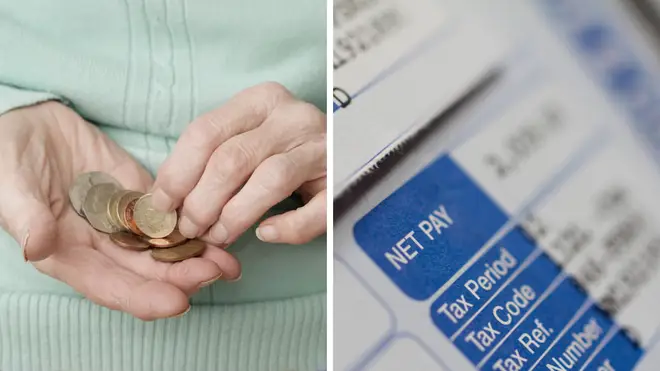
Ben Kentish 10pm - 1am
16 August 2022, 07:20 | Updated: 16 August 2022, 08:09

Workers are suffering the biggest slump in real pay since records began in 2001 as inflation continues to soar.
ONS director of economic statistics Darren Morgan said that whilst the number of people in employment had increased, the real value of pay had fallen faster than at any point in the last 20 years.
"The number of people in work grew in the second quarter of 2022, whilst the headline rates of unemployment and of people neither working nor looking for a job were little changed," he said.
Watch: Jack Monroe hits out at 'tone deaf' Govt and slams energy companies for 'playing us for fools'
"Meanwhile, the total number of hours worked each week appears to have stabilised very slightly below pre-pandemic levels.
"The real value of pay continues to fall.
"Excluding bonuses, it is still dropping faster than at any time since comparable records began in 2001."
The ONS said there was a 4.1 per cent drop in regular pay for employees once CPI inflation is taken into account.

Caller shares story of living in car with dogs
The ONS said regular pay, excluding bonuses, grew by 4.7 per cent over the three months to June.
Analysts had predicted that wages would increase by 4.5 per cent.
It comes after CPI inflation hit a new 40-year record of 9.4 per cent in June and is expected to peak at around 11 per cent later this year.
The ONS said this resulted in a 3 per cent drop in regular pay for employees once inflation is taken into account, representing the biggest slump since records began in 2001.
Watch: Rachel Johnson blasts Liz Truss over cost-of-living plan - 'Where is the detail?!'
Official figures also showed that the number of UK workers on payrolls rose by 73,000 between June and July to 29.7 million.
Mr Morgan added: "Redundancies are still at very low levels.
"However, although the number of job vacancies remains historically very high, it fell for the first time since the summer of 2020."
Meanwhile, the unemployment rate increased to 3.8% for the quarter compared with 3.7% for the previous period.

Are Lib Dems flattered by Labour's cost of living plan?
Chancellor Nadhim Zahawi said the figures "demonstrate that the jobs market is in a strong position".
"Today's stats demonstrate that the jobs market is in a strong position, with unemployment lower than at almost any point in the past 40 years - good news in what I know are difficult times for people," he said.
"This highlights the resilience of the UK economy and the fantastic businesses who are creating new jobs across the country."
He said the government was "providing help where we can" to alleviate the cost of living crisis.
Read more: 'Pack an emergency bag': Brits warned to prepare for flash floods as thunderstorms set to batter UK
Read more: Removal vans arrive at Downing Street as Boris jets off for second holiday before departure
Department of work and pensions minister Julie Marson said the figures showed the resilience of the jobs market but said she "[recognised] people are struggling with rising prices".
"Today’s figures show that the jobs market remains resilient with more people on payrolls and unemployment remaining at a near record low, despite the challenging economic circumstances we face," she said.
"We recognise people are struggling with rising prices and our work coaches stand ready to provide practical help for people to increase their earnings even after they’ve secured a job.
"Being in stable employment is one of the best ways for people to get on, but we’re also providing £1,200 direct payments for millions of low income households as part of our £37bn package of support to help with the cost of living."